

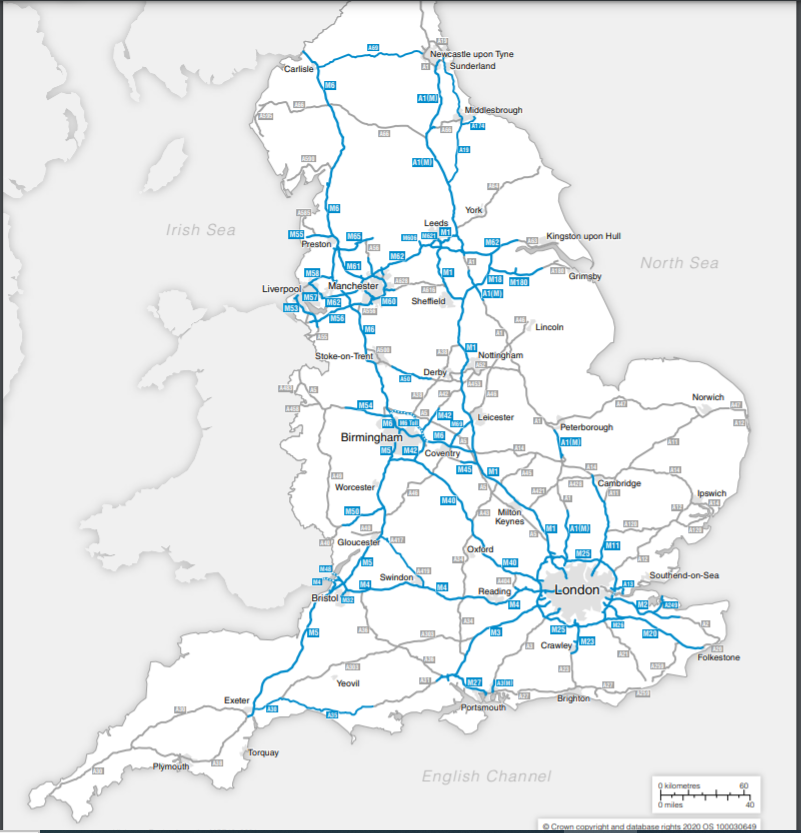
This is going to be part of a short series of blog posts where we try and give the general public an idea of why there is so much litter along the UK’s roads and also start helping people to take action.
We say ‘start helping people to take action’ because, unfortunately, responsibility for litter clearance can be annoyingly complicated. This post is a summary of the simple part.
Anyway – you may have noticed that the UK’s road network is often heavily littered with everything from large debris to road signs to cans, bottles and other packaging. It makes for pretty depressing viewing.
But what can you do as a member of the general public? Who do you go to? Who is accountable?
The simple part to this answer is that the motorways are managed by Highways England. So if you want to report a particularly littered motorway stretch, you can email them on info@highwaysengland.co.uk
Keep your email short and to-the-point, be specific about where the litter is and ask them to clear it away. If you don’t get a reply or see any action taken, email again. If you want to let us know how you get on and if you get any response, please do – we like to hear real-life stories and may share them on this blog. We can be contacted on info@cleanupbritain.org or on Twitter @cleanupbritain
We now get to the next (and more problematic) part – the A-roads. These are often the most heavily littered for reasons that will become clear.
So – Highways England are responsible for some of the A-roads; the map below is the only information Highways England release to clarify which roads/stretches of roads those are. You’ll notice there is no detail about which specific junctions are covered by them – we are working to get more detail on this as well as getting a higher resolution image. Anyway you can, in theory, simply do the same as above to report litter on these roads/stretches of roads.

However, the rest of the A-road network is managed by local borough and district councils, meaning some A-roads may go through 6 or 7 of these. There are frequently no signs showing which council is responsible for which stretch, no obvious way to report litter and there is the complication that the councils don’t have the power to close roads to litter-pick – something which is often used as a reason not to litter-pick. It is also often not clear who looks after roundabouts, slip roads and connecting roads.
We will be providing more detail on this as well as some suggestions about what to do about it in our next post.
In the meantime, at least you know who to approach about the motorways…
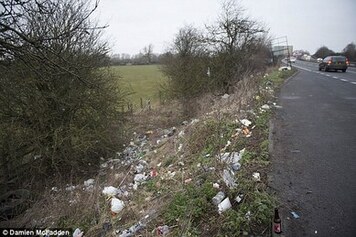
As an update to our recent summary of Freedom of Information request findings, we have also been asking councils for details on how often they litter-pick the A-roads in their area.
Sevenoaks District Council deny responsibility for litter-picking the A21, saying that it was last done by National Highways/Kent County Council in July 2021 and they are not aware of any current plans to do it again. Previous responses from them confirmed that they have never litter-picked their central reservation area and believe this to be the responsibility of National Highways (even though it is quite clear in NH’s one published, publicly-available map that they are not responsible for any part of the A21, and neighbouring councils and Kent County Council have confirmed that the district and borough councils are responsible for the road).
Tunbridge Wells Borough Council took months to provide the information about their litter-picking schedule, and when provided, it revealed that their section was last litter-picked in October 2021 and is just about to be litter-picked again. Their original response to our query also stated that they believed Kent County Council were responsible for litter-picking, although both they and KCC have subsequently confirmed that this is not true.
While this is just two councils, it is indicative of the chaos out there which produces the visible results along the UK’s A-roads.
If you have done any Freedom of Information requests to find out whether your local authority regularly litter-picks any A-roads which run through them, please do send them in to us on info@cleanupbritain.org

No, neither did we – and usually we don’t promote litter picking, on the basis that it is not the public’s job to be a sticking plaster for inadequate local and national services.
However, Litterlotto combines binning litter with free entry into a prize draw with regular spot prizes and monthly jackpots, all supported by brands that want a cleaner environment. So there is really no reason for us not to spread the word and encourage people to go for it and potentially get something for their efforts.
To get involved, you need to download the app onto your phone, read their ‘Getting Started’ guide and that’s pretty much it!
Visit www.litterlotto.com
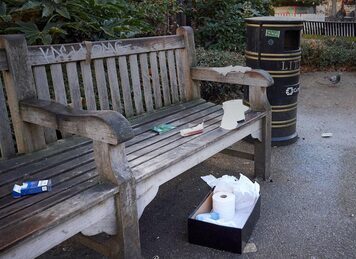
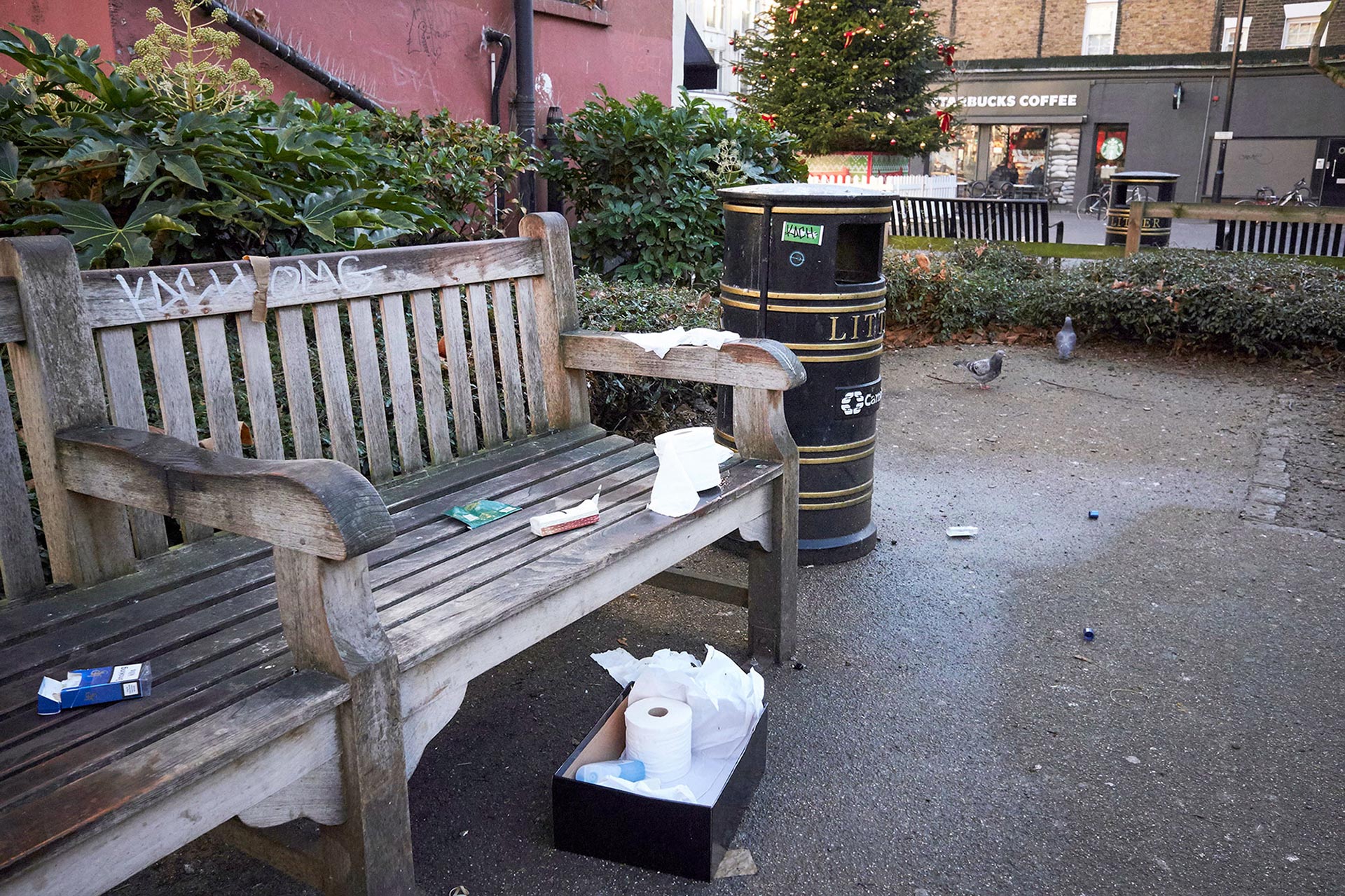
Since the end of 2021, Clean Up Britain has been engaged in a project to get further into the details of what is happening up and down the country with regards to councils and litter action.
A group of Local Champions have been sending requests to their councils to help us answer some key questions about litter prevention in England.
At the time of writing, there are 330+ local authorities in England alone – this makes it a pretty significant task to get round all of them and collate the responses. However, we have already contacted a very significant sample size of 70+.
This means we are getting a pretty good idea of why things out there look like they do.
Here are some initial headlines:
– Councils which use private enforcement agencies issue significantly more fines for littering than those which don’t
– Almost all the councils which use private enforcement agencies have contracts in place which are at least cost-neutral
– Some councils don’t know how many bins they manage
– Some councils have responsibility for managing bins and some apparently don’t
– Virtually no councils separate out the cost of litter picking from their overall street cleaning contracts, meaning the true cost the of the problem is difficult to identify and therefore reduce
– The amount that you are fined for littering and the likelihood that you will be fined for littering varies hugely from one area to another
The picture is a mix of definitely good and definitely bad practice. It is also highly fragmented, which raises the question of why some of these important maintenance issues are not more standardised across the country – are things really so different in Tonbridge & Malling, Waverley and Amber Valley..? And why, when the answers and outcomes are often so clear-cut, is there so little consensus and sharing of best practice?
More to follow as further findings are analysed.

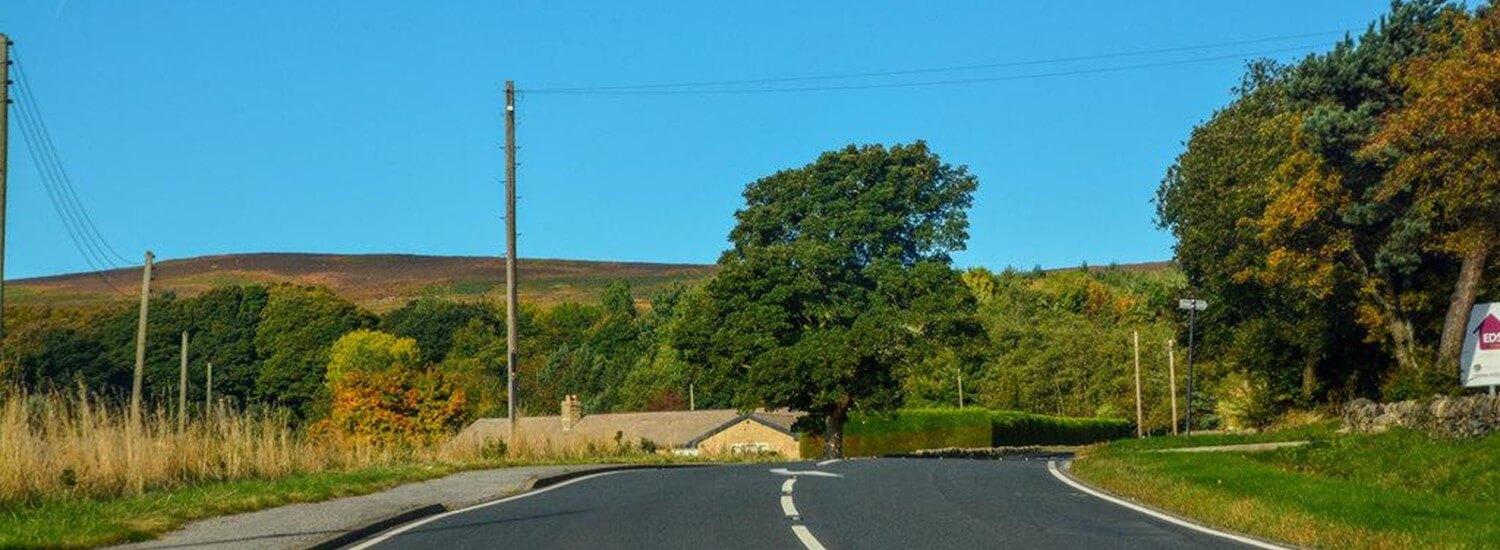
The following statement – apart from being delusional and untrue – would not have been out of place if issued by the Politburo in the former Soviet Union!
“The cleanliness of the city’s roads has been acknowledged by central government, following an independent assessment of roadside litter levels in areas maintained by local authorities and Highways England. The assessment was carried out by UK-based environmental charity, Keep Britain Tidy, on behalf of DEFRA, whose analysis congratulated Sheffield City Council for maintaining a consistently high standard of roadside cleanliness.
Are they being serious?
Anyone who lives in or near Sheffield knows that the city suffers from a severe litter problem. It’s also true to say that Sheffield City Council has no discernible litter strategy, and that if it wasn’t for the tireless and community-spirited work of Sheffield Litter Pickers and other local volunteers, the city would resemble downtown Dhaka.
The city is covered in litter – as indeed is the whole country. Consider the words of local Sheffield MP, Clive Betts:
“I’m ashamed, angry and embarrassed – our country is a filthy, littered, disgrace”
This aforementioned ‘assessment’ was carried out by Keep Britain Tidy – an organisation well past its expiry date – that has been the recipient of £100m+ of taxpayers money from DEFRA (Dept for Environment) and who many people know as ‘DEFRA’s litter lackeys”.
As Jeremy Paxman, Clean Up Britain’s Patron, says… “Keep Britain Tidy are even more useless than DEFRA” – and that’s saying something!
So, what we have here is one useless organisation telling another useless organisation that Sheffield City Council are doing a good job.
Given the vast volumes of litter in and around Sheffield which is collected by volunteer litter pickers every week, forgive local people if they find this so-called ‘independent assessment’ little more than deceitful state sponsored propaganda.
And just so people know, Sheffield Litter Pickers go out a few times every week, and collect between 40-60 bags of litter from Sheffield streets in only a few hours.
If anyone is keeping the city clean – and deserves an accolade – it could be argued it’s them.
Sheffield City Council need, in the first instance, to do three things….
Firstly, implement a highly professional anti-litter behavioural change campaign. Not the half-baked and ineffectual version that DEFRA has cooked-up behind closed doors with Keep Britain Tidy.
Secondly, ensure that active and high visibility litter enforcement and fining takes place in Sheffield. As behavioural change experts, we know that the perceived fear of being fined is a powerful deterrent to litterers. Ideally, this needs to be done by a private sector company, as in-house Council enforcement fails in most places.
Thirdly, provide funding and genuine support to fantastic local groups such as Sheffield Litter Pickers and Love Our Streets.
Failing this, they should have the courage and honesty to say to the people of Sheffield that they have given up on the fight against litter, and are merely interested in engaging in the sort of misleading pretence perpetrated by Keep Britain Tidy and DEFRA.
PS. The below four photos are more representative of what Sheffield actually looks like, and were all taken by local people.
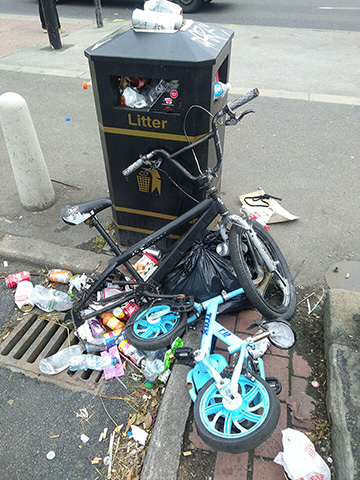
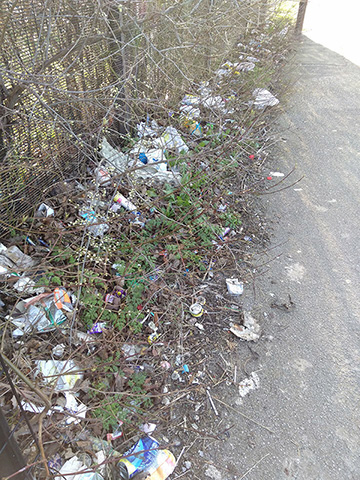
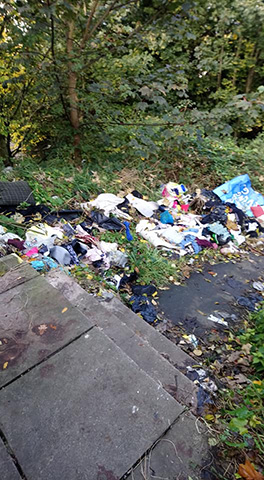


If you are concerned by the amount of litter you see, whether it is in parks, town centres, on roadsides or on beaches, please do give your views to the government by filling in this consultation:
We know there is no quick fix to the litter problem but the highly-successful plastic bag charge has led to a huge reduction in plastic bag littering.
A story in The Times yesterday highlighted that one beach litter-pick project run by the Marine Conservation Society found that 13 bags/100m stretch of beach in 2013 had reduced to just 3 bags/100m stretch this year – the charge was introduced in 2015. Similarly, since Scotland banned plastic cotton bud sticks in 2019 and England did in 2020, instances of these per 100m have reduced from 15 to 6. So government interventions can have a really significant impact.
Don’t miss this opportunity to have your say and make sure our roads, towns, rivers and beaches are included in the current rhetoric about protecting the environment.

Apologies to those for whom this article is behind a paywall, but if you are a Times subscriber this is an impressive and interesting study and worth reading.
Glow-in-the-dark bins show litterers the light on Bournemouth beach
Using drones and analysis of the litter they observed, glow-in-the-dark bins and ‘ballot bins’ (which make depositing litter the subject of a fun preference question) were installed in strategic locations on Bournemouth beach.
An reduction of 88 per cent in glass bottles and aluminium cans was observed as a result of the glow-in-the-dark bins and ballot bins resulted in a 73 per cent reduction in discarded cigarette butts.
To ensure a fair comparison, one side of the beach used this approach while the other did not – overall, on the side which had the trial a 79 per cent reduction in litter was observed while there was no reduction on the other side.
The project was funded by McDonald’s, the drones were operated by Ellipsis Earth and the project was carried out by Bournemouth, Christchurch and Poole Council in partnership with Hubbub, an environmental charity.

We are pleased to announce that over the past few months, Clean Up Britain has launched a new initiative to raise awareness of litter at a local level and and encourage action.
Our network of Local Litter Champions will be reporting issues to their local authorities, monitoring progress and requesting information on how local authorities manage litter clearance. All this will help inform our national campaigning as well as highlighting different practices, good and bad…
As well as providing the practical help above, the group exists as a way for concerned members of the public to get involved in doing their bit by something other than litter-picking – something we feel is only papering over the cracks in terms of solving the problem.
On this blog we will share some of the Champions’ experiences, updates on the issues faced by those looking to help stop Britain’s litter crisis and some facts and figures on the state of litter management in the UK.
To be kept up to date on our campaigning, don’t forget to follow us on Twitter @cleanupbritain and join our list of supporters. We know we don’t keep in touch that often but as we get more resource we are hoping to do more!